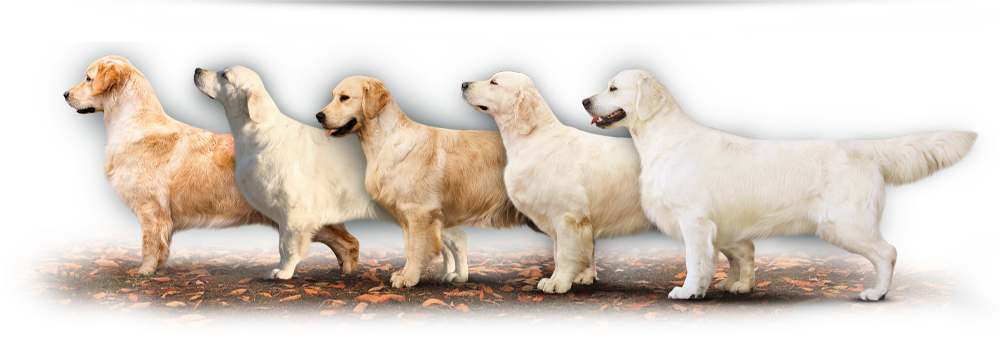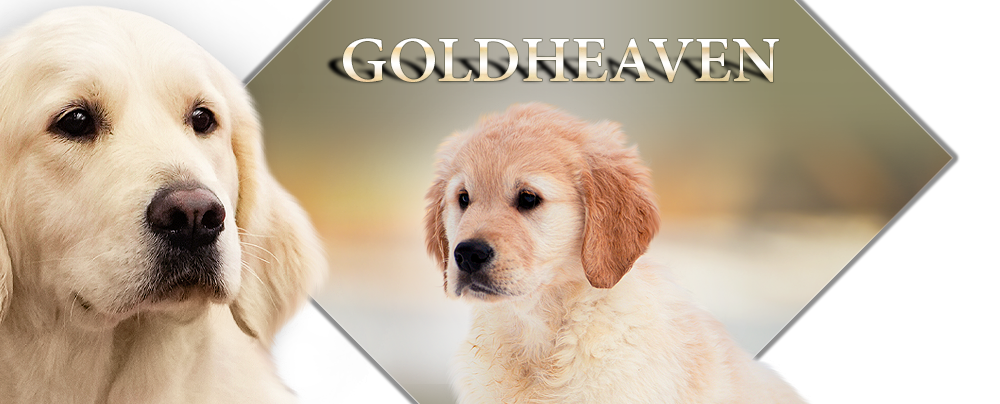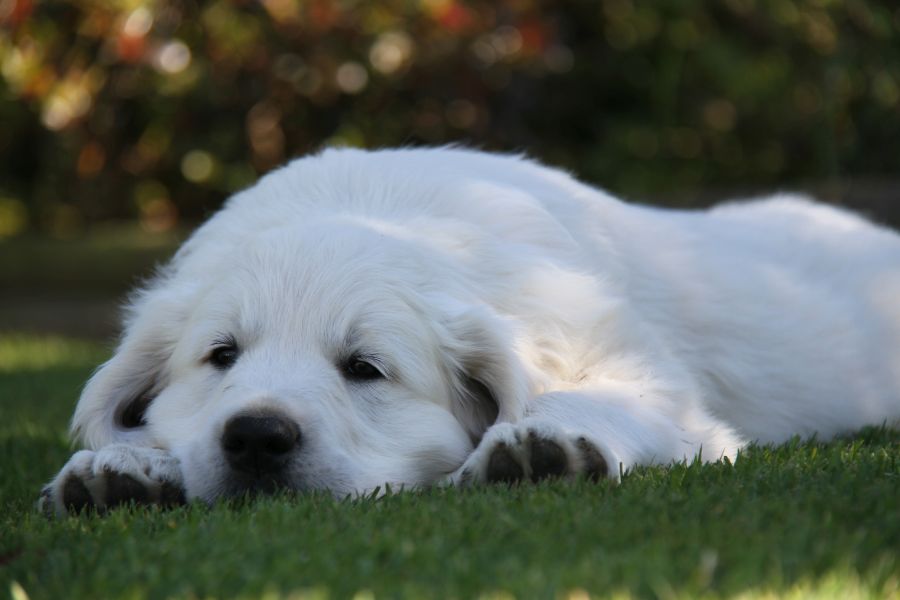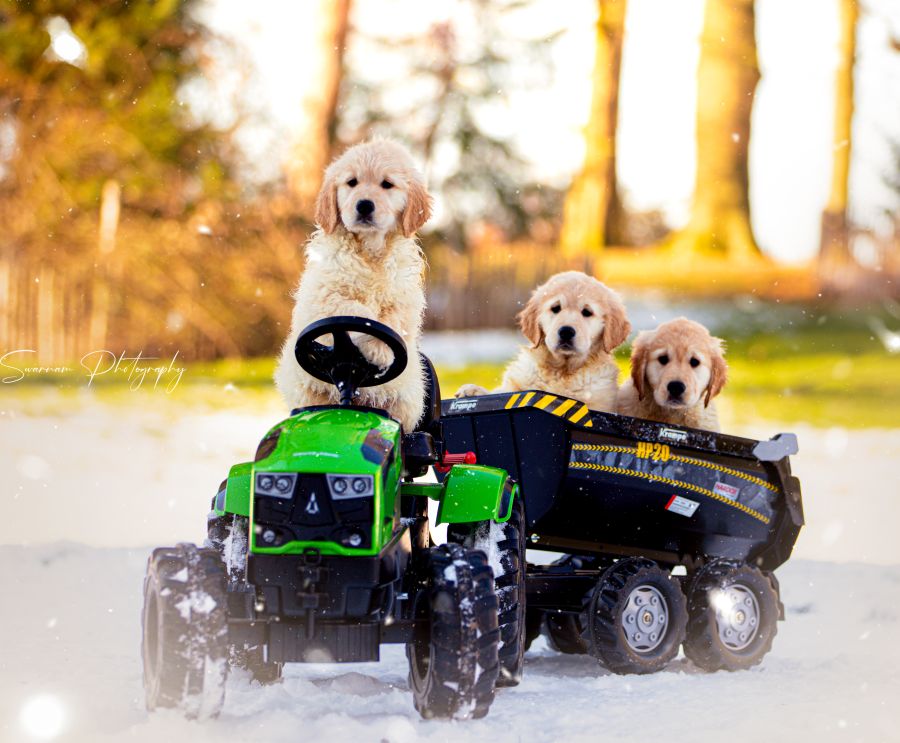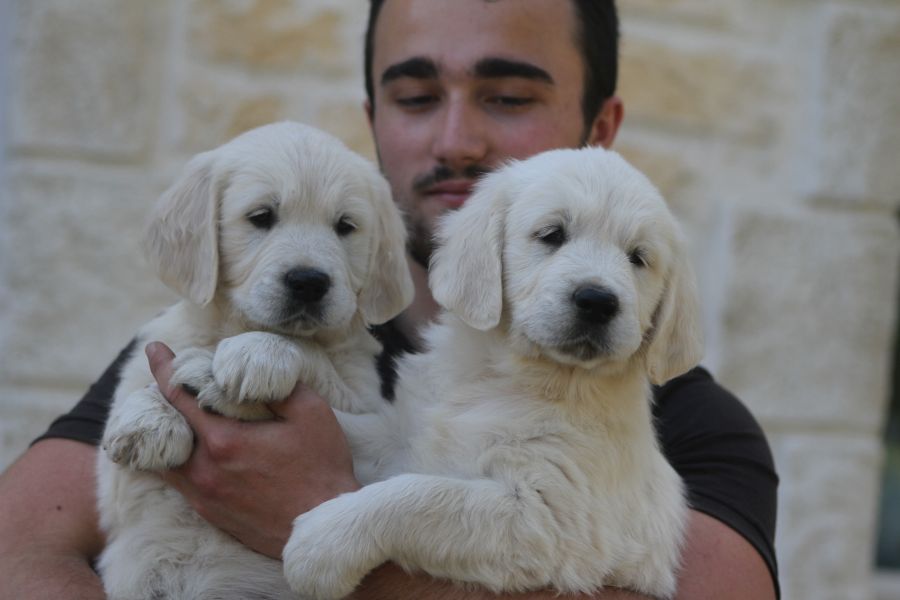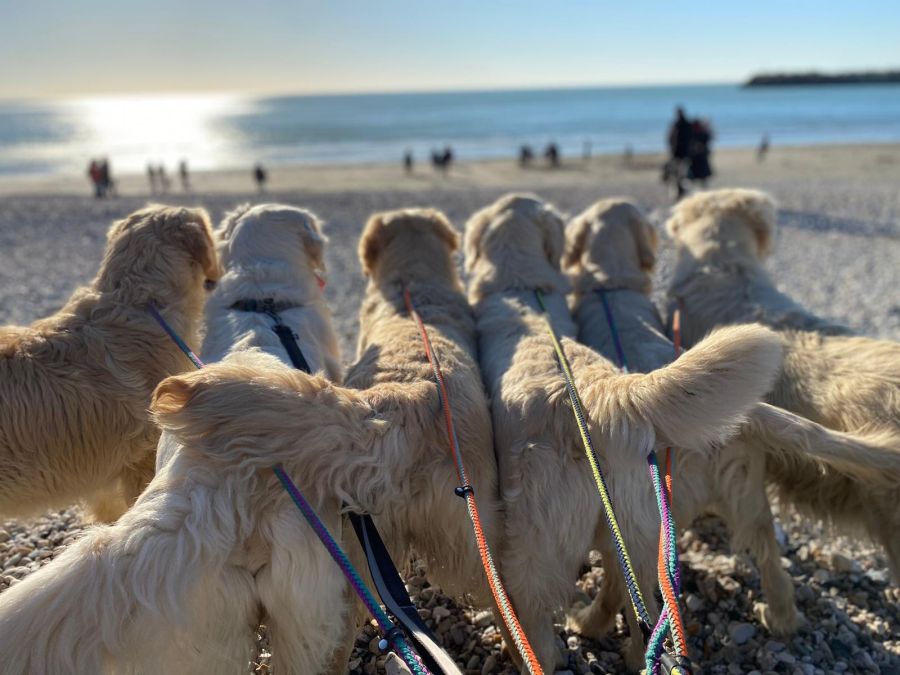
ADVICE
The day of arrival |
House Training |
Sleep
Socialization |
Absence |
Punishment
Walking on Leash |
Grooming
Growth |
Vaccinations & Deworming |
Heat Cycles
The day of arrival
If possible, come accompanied: the passenger can take care of the baby during the journey. Bring a towel, paper towels, a bowl, and water. During the trip, stop every two hours for restroom breaks and offer water but no food.
It’s best for the puppy to arrive with its new family during the day. This way, it will have time to explore and get used to its new environment before bedtime. If you can take a few days off or at least the weekend for its arrival, that’s ideal. Leaving the breeder, your puppy undergoes stress, so be patient; don’t introduce it to the entire family, friends, neighbors, and the baker right away.
For a good start, your puppy needs calmness: avoid vacuum cleaners, hairdryers, children screaming to catch the puppy, and no bath even if it was a little sick during the journey. Offer water upon arrival but stick to normal meal times. Don’t be surprised if it refuses its food at first.
For the first night, choose a quiet place it has already explored during the day and put its belongings there. You can leave a dim light on. The first night (and maybe the next) is often difficult. Don’t be too close to your puppy in the early evening; let it find its bearings in the room where it will sleep. Go to bed without it noticing, close the door of the room without talking to it, as if it were completely natural. Even if it’s hard to hear it cry, resist the urge to check on it, or you’ll be on duty every night.
House Training
Upon arrival, even before entering the house, place the puppy outside immediately where you want it to relieve itself; leave it alone while staying nearby. As soon as it relieves itself, praise it enthusiastically using the same words, then bring it back inside. Each time you take it out for its needs, bring it back to the same spot; it will quickly understand that relieving itself there pleases you. Take it out regularly, as a puppy, like a human baby, can’t hold it for long until about 4 or 5 months old. Take it out as late as possible at night and as early as possible in the morning, as soon as it wakes up from a nap or eats.
If, despite everything, there’s a little accident, here’s what to do: at the breeder’s, the puppies are used to their mother eating their droppings. If your furry ball sees you cleaning up after it, it will think you’re doing what its mother does and find it natural. So, it’s recommended to clean up while your puppy is busy elsewhere. If you catch it relieving itself in a forbidden area, and only if you catch it in the act, firmly say “NO” and put it where you want it to go; putting its nose in it is a mistaken idea, it will think it should, like its mother before, eat its excrement or hide them so you won’t find them.
Sleep
Sleep is essential for your puppy’s balance and growth; it needs a lot of sleep, and growing tires it out. Respect and ensure its sleep is undisturbed, even if you’re eager to play with the puppy. Make sure your puppy has its own quiet place to sleep and rest.
Socialization
After being careful not to stress your puppy during the first few days, quickly familiarize it with household noises, then introduce it to the outside and the bustle of the city (but don’t tire it out).
If your puppy shows signs of mistrust, don’t overprotect it; stay calm, act as if everything is normal, and especially don’t pick it up to comfort and kiss it. It will quickly learn that by being fearful, it attracts your attention and gets cuddled; by acting this way, your dog will become completely dependent on you, lose autonomy, and may become fearful.
Absence
To avoid being a slave, your puppy must learn to stay alone. This will give it autonomy, which is very important for the breed you have chosen. Your dog must love you but also be able to exist without you. Over-attachment is very dangerous; it leads to deep behavioral issues.
Every time you leave your dog, do it naturally, without ceremony or explanation, like: “Mommy’s going, she’ll be back right away.” No effusion when you return either; if you remain calm, it will find your absences normal, and everything will go well. Otherwise, watch out for damage and barking.
A little advice: during your first absences, put away anything dangerous or valuable. Provide toys for it.
Punishment
You can only punish your puppy if you catch it in the act. Say “NO” firmly but calmly. It’s better to use positive reinforcement with a puppy rather than continuously punishing it.
Growth
My recommendations may seem strict, but if you want a beautiful and healthy dog, follow these rules carefully:
• No long walks on a leash until 10-12 months old. Don’t overwork your puppy; playing in the garden is enough. If you go to a nice place, don’t deprive yourself of its company, but sit down and enjoy watching it frolic around you.
• No frantic games like “fetch the ball” for half an hour.
• Be careful if it plays with other dogs: it can get tired or be jostled.
• Don’t raise it on slippery tiles, which are dangerous for ligaments.
• Don’t let it go up and down stairs.
• The same goes for getting in and out of the car.
Physically, it will change quickly: from chubby, it can become slender in a few months, sometimes with the back higher than the front, like a wheelbarrow. It’s normal; everything will return to normal with time. You may find me a bit of a killjoy, but there you have it, I’m done with my advice. Soon you’ll be able to fully enjoy your dog.
Grooming
Quickly teach your puppy to be groomed. It will appreciate this special moment when you take care of it.
The first time, the session shouldn’t be long; just teach it to stay still. It’s better to put it on a table reserved for this purpose, stable and non-slip, to avoid hurting your back. Being up high, your dog will be less unruly. Like a baby on a changing table, always keep a hand on it so it doesn’t fall. One session a week is enough to have a perfect dog, provided you do it correctly. Use a metal comb and detangle your dog strand by strand down to the roots. If you only brush the top, beware of knots, and what should be a pleasure will quickly become a chore for you and your companion. Finally, you can give it a brush to fluff up the fur. The finishing touch: a little spray of mink or jojoba oil to nourish the coat and leave a pleasant smell.
Bathing, contrary to popular belief, does not damage the fur; quite the opposite, provided you don’t use shampoo for human hair, as the pH is different from that of the coat. Take advantage of grooming to check if your dog has fleas, ticks, irritations, or injuries. Don’t forget to clean the ears and watch the teeth; your dog will change teeth between 4 and 6 months. When it is older, make sure it doesn’t have tartar.
Walking on Leash
As soon as your little one has settled in and follows you everywhere in the garden, put on its collar and leash. At first, let it walk around so it accepts its new gear. Gradually take the reins. You must quickly make it understand that on the leash, it should neither pull nor surpass you. When it’s in place, tell it “good boy” and release the tension on the leash. In 1 or 2 sessions, your dog will have understood this for its whole life.
Vaccinations, Deworming
Your puppy was vaccinated at 8 weeks (distemper, parvovirus, hepatitis, leptospirosis, kennel cough). At 3 months, it should have a booster plus the rabies vaccine. Attention: throughout its life, it will need to be vaccinated annually. At the breeder’s, your puppy was regularly dewormed against internal parasites. You should take over and do it every month until 6 months, then 2 to 4 times a year. If you have other animals at home, deworm everyone before the baby arrives.
For traveling, ask your vet to issue a European passport for your companion.
Heat Cycles
A female dog can come into heat between 8 and 12 months. The first week, she will only bleed and lick herself; the second week, the vulva will be swollen, and the bleeding will lighten. Beware: the critical period when she attracts neighborhood dogs is usually between the 10th and 16th day. Watch out for open doors or holes under the fence; an accident can happen quickly. Believe me, if breeding purebred dogs is difficult, be sure that the neighborhood “Médor” won’t miss his chance.
Breeding a litter is a wonderful thing, but not easy and not without risks for novices. If you do not plan to breed her, choose to have her spayed. Talk to your vet; I’m sure he will advise the same. This will prevent your dog from uterine and mammary problems. If you decide to breed your dog, wait until she is at least 2 years old and seek advice from a professional who will explain the administrative procedures (confirmation, X-rays, SCC declarations), guide you in choosing a stud, and give you advice.
